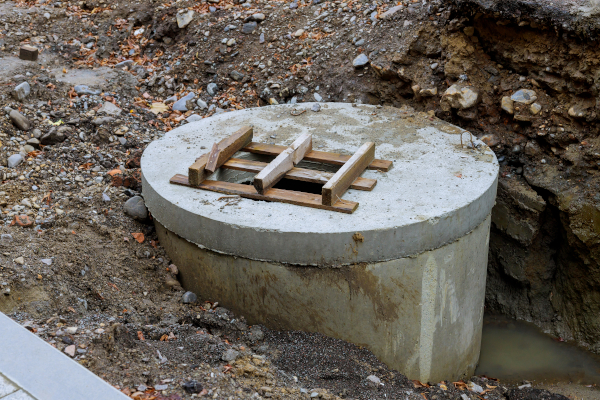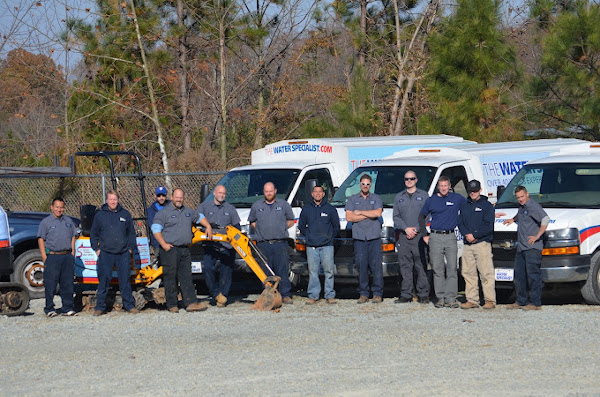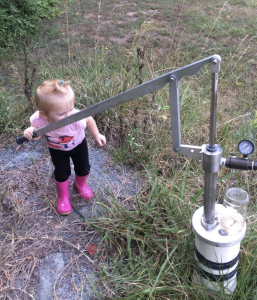
Do You Need Well Water Testing Near Durham, NC
Don’t wait—take action now to ensure your well water is safe and clean. Call The Water Specialist today!
Durham residents who depend on private wells must perform regular well water testing to protect their health since it is an essential rather than optional measure. Private well owners must ensure their water remains safe since municipal authorities do not perform rigorous and frequent testing on these systems like they do with public water systems. This article discusses the fundamental need for well water testing in Durham while detailing recommended schedules and offering advice to help protect your family’s drinking water.
Owners of private wells in Durham encounter distinct difficulties related to maintaining safe water. Durham’s municipal water system benefits from ongoing monitoring but private wells remain unregulated. Multiple sources cause well contamination including heavy metals from natural geological formations and pesticides plus nitrates from agricultural runoff which combine with bacterial intrusion from failing septic systems. If regular testing isn’t performed contaminants remain hidden which could lead to serious health issues spanning from short-term gastrointestinal illness to long-term risks such as developmental problems and greater cancer risk. The results from testing allow us to make educated decisions regarding water treatment choices and filtration systems or even to identify alternative water sources when needed.
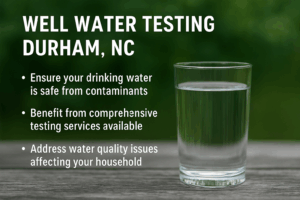 Durham well owners must establish a structured testing timetable to achieve thorough monitoring. The primary goal of annual testing is to detect bacterial contamination by evaluating total and fecal coliform bacteria which serve as indicators of disease-causing organisms. These essential tests cost relatively little but remain critical because bacterial contamination can strike unexpectedly and produce immediate health issues. Every two years well owners should test for inorganic substances that can enter their water systems through both natural processes and human activities. The testing covers heavy metals that include arsenic, cadmium and chromium as well as nitrates and nitrites from fertilizers and plumbing issues involving lead and copper in homes. These hazardous substances accumulate at a slow pace which allows biennial scheduled testing to effectively track these risks.
Durham well owners must establish a structured testing timetable to achieve thorough monitoring. The primary goal of annual testing is to detect bacterial contamination by evaluating total and fecal coliform bacteria which serve as indicators of disease-causing organisms. These essential tests cost relatively little but remain critical because bacterial contamination can strike unexpectedly and produce immediate health issues. Every two years well owners should test for inorganic substances that can enter their water systems through both natural processes and human activities. The testing covers heavy metals that include arsenic, cadmium and chromium as well as nitrates and nitrites from fertilizers and plumbing issues involving lead and copper in homes. These hazardous substances accumulate at a slow pace which allows biennial scheduled testing to effectively track these risks.
Well Water Testing Protocols
Through detailed studies of well water contamination throughout North Carolina, the NCDHHS established their testing protocols. The guidelines produced by the NCDHHS incorporate a balanced methodology that evaluates both how often contamination happens and the potential health dangers it presents. According to the NCDHHS these testing recommendations serve as the lowest possible testing frequency yet owners with wells near known contamination sources or intensive agricultural and industrial operations should consider more frequent testing. The department advises immediate well water testing when significant changes in water quality such as color alterations, odors, or taste variations occur regardless of the established testing timetable.
Well Water Contaminants and Health Risks
The health risks from well water contaminants change based on their specific types and levels of concentration. Exposure to bacterial contamination can lead to gastrointestinal distress and symptoms like nausea, vomiting and diarrhea that usually manifest within days. Heavy metals represent a distinct hazard because they generally do not produce immediate symptoms but can lead to severe health consequences over extended exposure periods. Lead exposure could lead to developmental delays in children while causing cardiovascular problems in adults. Arsenic exposure could result in skin conditions while also increasing diabetes risk and causing specific cancer types. Liver damage and gastrointestinal distress may result from having too much copper in the body. Nitrates pose significant risks to infants because they can lead to ‘blue baby syndrome’ also known as methemoglobinemia. The recommended testing schedule targets immediate bacterial threats and long-term issues from heavy metals and chemicals because understanding these risks shows their importance.
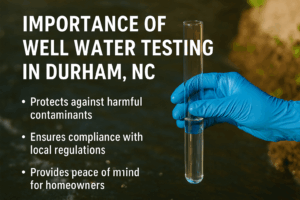 The foundation of a complete water safety strategy depends on well water testing. Testing delivers essential data to pinpoint existing problems and establish fitting solutions. To address bacterial contamination of water systems one can use methods such as shock chlorination or ultraviolet light systems and continuous chlorination. Contaminant-specific chemical treatments include activated carbon filters and reverse osmosis systems. Well owners who skip testing risk operating without knowledge which can lead to missed serious contamination or needless expenses for treatment systems.
The foundation of a complete water safety strategy depends on well water testing. Testing delivers essential data to pinpoint existing problems and establish fitting solutions. To address bacterial contamination of water systems one can use methods such as shock chlorination or ultraviolet light systems and continuous chlorination. Contaminant-specific chemical treatments include activated carbon filters and reverse osmosis systems. Well owners who skip testing risk operating without knowledge which can lead to missed serious contamination or needless expenses for treatment systems.
When to Get Well Water Testing in Durham
While annual and biennial testing focuses on common contaminants, quinquennial (every five years) testing addresses less frequent but still significant concerns: pesticides and volatile organic compounds (VOCs). The higher cost and lower necessity of these tests means they are conducted less frequently. Groundwater receives pesticide contamination through agricultural operations over time and VOCs from industrial activities alongside fuel spills and household chemicals contaminate well water via several transmission routes. Although testing for these compounds can be costly for homeowners it offers long-term advantages that surpass these financial challenges. Identifying these harmful substances early on helps protect against extended exposure which leads to health problems like nervous system damage and liver problems and increases cancer risk and reproductive difficulties. Exploratory testing stands as a protective measure for Durham families to maintain health and secure property value in the future.
Private well owners in Durham should understand well water testing as a core duty. Residents who adhere to the NCDHHS testing schedule which includes yearly bacterial testing and tests for heavy metals and nitrates every two years plus pesticide and VOC screenings every five years can maintain safe drinking water. Performing extra testing after flooding events or well repairs and water quality changes help protect against contamination. The commitment to a regular testing schedule demands both diligence and financial resources but avoiding this testing exposes people to dangerous health problems from consuming contaminated water. Durham well owners who conduct regular testing and apply necessary treatments can safely enjoy the advantages of their private water supply.


